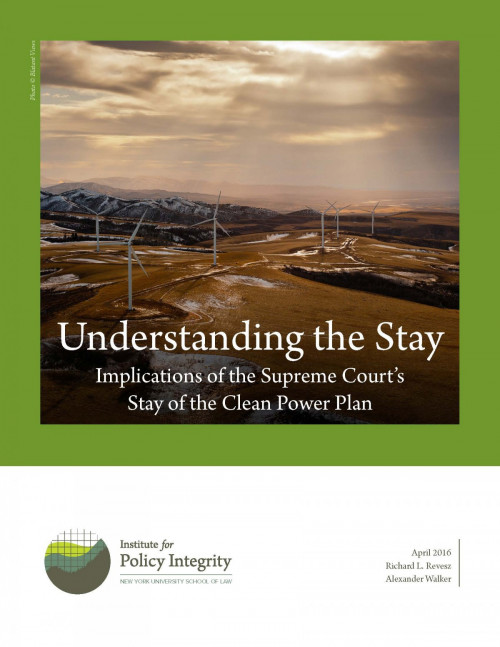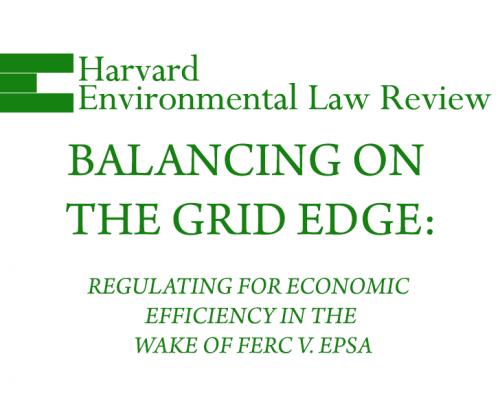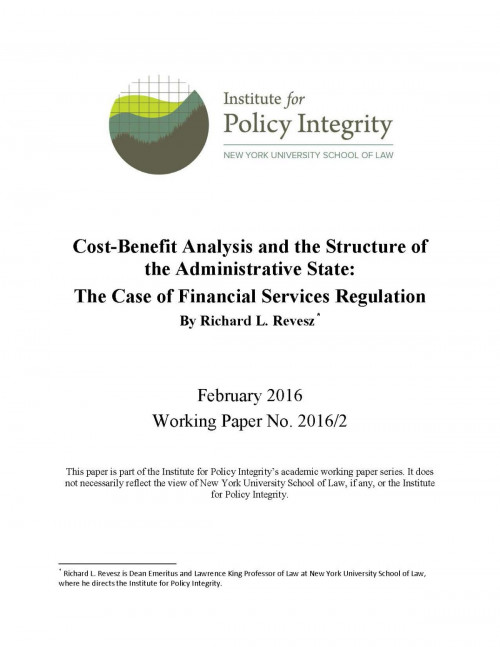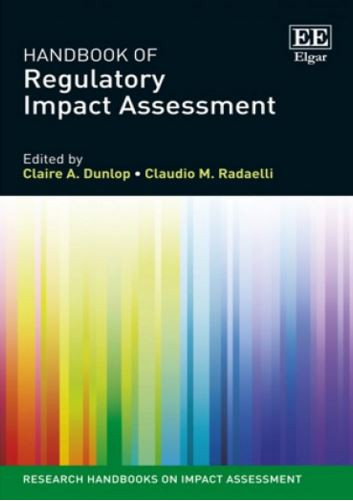The Institute for Policy Integrity produces a variety of publications. Our research reports develop in-depth research on our core issues, while our policy briefs and issue briefs provide focused analysis on more timely or particular topics. Our academic articles and working papers offer original scholarly research and analysis from established experts as well as fresh new voices.
Latest Publications
-
The Turn Toward Toxins
An Essay Review
A growing number of historians have begun to turn their attention to crucial transitions in the ‘chemical age’ of the 20th century in order to understand both how ‘invisible’ chemicals endangered the environment and public health as well as how science and technology mediated perceptions of this danger. Several important new works have demonstrated the need for scholarship not only on the environmental and health effects of pollutants, but also on how institutions and governments began to care about such changes and define them positively or negatively.
-

Understanding the Stay
Implications of the Supreme Court’s Stay of the Clean Power Plan
Since the Supreme Court stayed EPA’s Clean Power Plan, which regulates carbon dioxide emissions from existing fossil fuel-fired power plants, opponents of the plan have been making unfounded assertions about the consequences of the stay. This policy brief aims to clarify the stay’s implications for EPA’s implementation work and the plan’s future compliance deadlines.
-
Handbook of Regulatory Impact Assessment
Jason Schwartz, legal director at the Institute for Policy Integrity, authored a chapter in the new Handbook of Regulatory Impact Assessment. Schwartz’s chapter explores the varied applications and approaches to cost-benefit analysis in the context of regulatory impact assessment.
-

Balancing on the Grid Edge
Regulating for Economic Efficiency in the Wake of FERC v. EPSA
This new article from senior attorney Denise Grab is featured in a special edition of the Harvard Environmental Law Journal that focuses on the Supreme Court’s FERC v. EPSA case.
-

Cost-Benefit Analysis and the Structure of the Administrative State
The Case of Financial Services
The viability and desirability of conducting cost-benefit analysis of financial regulation is a subject of intense academic debate. Opponents claim that such analysis is feasible for environmental regulation but not for financial regulation because of the difference in the benefits that require monetization in the respective areas. This article, which will be published in a forthcoming edition of the Yale Journal on Regulation, argues that the recent debate misses an important part of the problem. In large part, cost-benefit analysis of financial regulation cannot currently be performed successfully because of institutional shortcomings, not analytical difficulties. Compared to Executive Branch agencies, independent agencies, like the major financial regulatory agencies, lack the capacity to do cost-benefit analyses of acceptable quality. Fortunately, there are good Executive Branch models that could be exported to the financial regulatory agencies.

